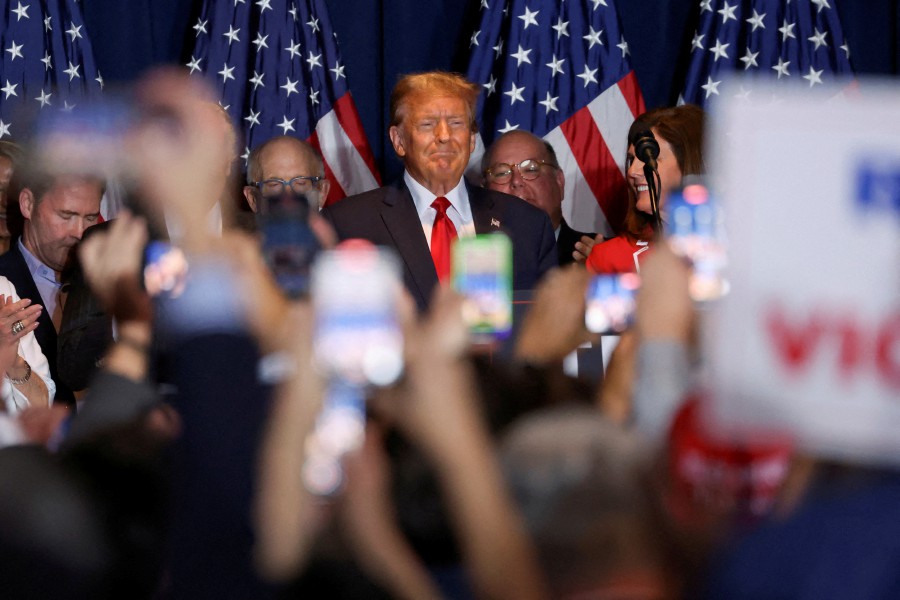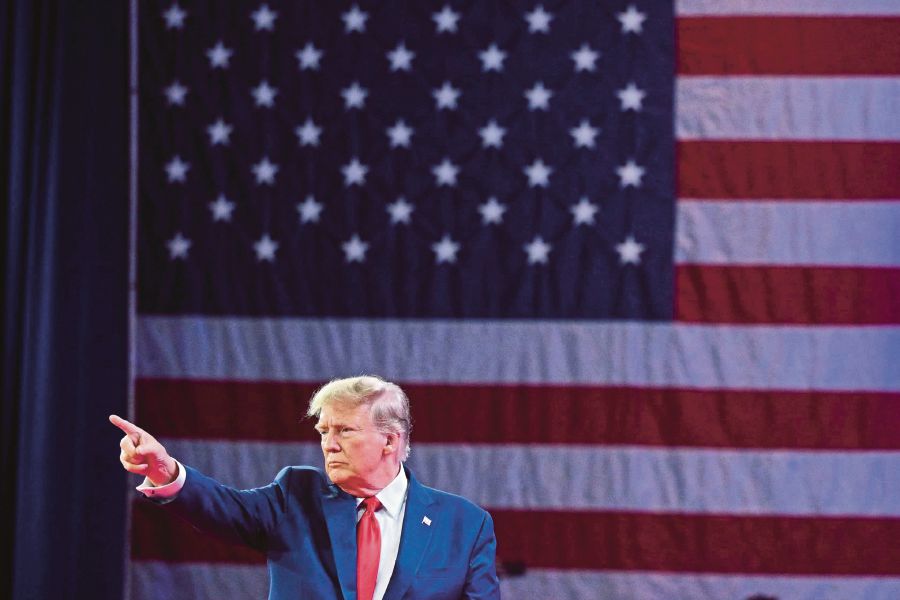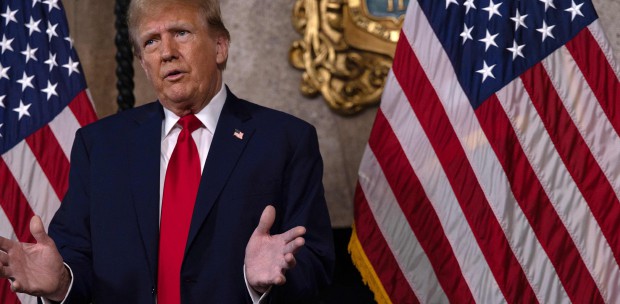WASHINGTON: The US Supreme Court agreed on Wednesday to hear Donald Trump's claim that as a former president he is immune from prosecution, further delaying his trial on charges of conspiring to overturn the 2020 election.
The nation's highest court scheduled arguments in the high-stakes case for the week of April 22 and said Trump's federal election interference trial would remain on hold for now.
Trump had been scheduled to go on trial on March 4 for conspiring to subvert the results of the 2020 election won by Democrat Joe Biden but the proceedings have been frozen as his presidential immunity claim wound its way through the courts.
Trump welcomed the Supreme Court decision to hear the case saying "without Presidential Immunity, a President will not be able to properly function, or make decisions, in the best interest of the United States of America."
"A President must be free to make proper decisions," Trump, the frontrunner for the 2024 Republican presidential nomination, said in a post on his Truth Social platform. "He must not be guided by the fear of retribution!"
In agreeing to hear the case, the conservative-dominated Supreme Court, which includes three justices nominated by the former Republican president, said it was not "expressing a view on the merits" of a lower court's ruling that rejected Trump's immunity claim.
It said it would address the question of whether a former president has "immunity from criminal prosecution for conduct alleged to involve official acts during his tenure in office."
The question of whether a former US president is immune from prosecution is an untested one in American jurisprudence because until Trump, an ex-president had never been charged with a crime.
It will be among the most consequential election law cases to reach the Supreme Court since it halted the Florida vote recount in 2000 with Republican George W. Bush narrowly leading Democrat Al Gore.
A three-judge appeals court panel ruled earlier this month that the 77-year-old Trump has no immunity from prosecution as a former president.
Trump's claim to be immune from criminal liability for actions he took while in the White House is "unsupported by precedent, history or the text and structure of the Constitution," the judges said in a unanimous opinion.
"We cannot accept that the office of the Presidency places its former occupants above the law for all time thereafter," they said.

The appeals court put the immunity ruling on hold to give Trump the opportunity to appeal to the Supreme Court.
Special Counsel Jack Smith filed the election conspiracy case against Trump in August and had been pushing hard for the March start date for his trial.
Lawyers for the former president have sought repeatedly to delay the trial until after the November presidential election, when Trump could potentially have all of the federal cases against him dropped if he wins.
Trump also faces 2020 election interference charges in Georgia and has been indicted in Florida for allegedly mishandling classified information after leaving the White House.
He is scheduled to go on trial in New York on March 25 on state charges of falsifying business records by paying pre-election hush money to a porn star.
Trump was impeached twice by the Democrat-controlled House of Representatives while in office – once for inciting an insurrection – but acquitted both times by the Senate.
The immunity case is one of two election-related cases before the Supreme Court.
The Colorado Supreme Court barred Trump in December from appearing on the Republican presidential primary ballot in the western state because of his role in the January 6, 2021 attack on the US Capitol by his supporters.
Trump appealed the Colorado ruling and the Supreme Court heard the case in early February.
Both conservative and liberal justices expressed concern during arguments about having individual states decide which candidates can be on the presidential ballot this November. — AFP





